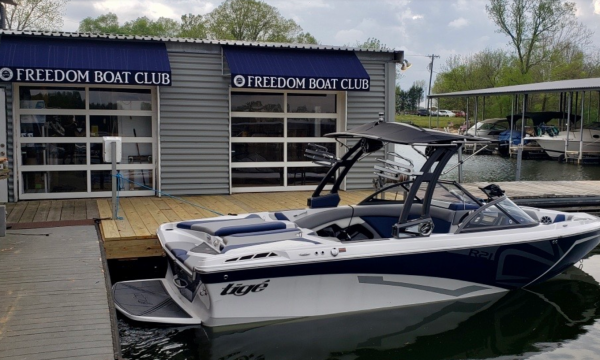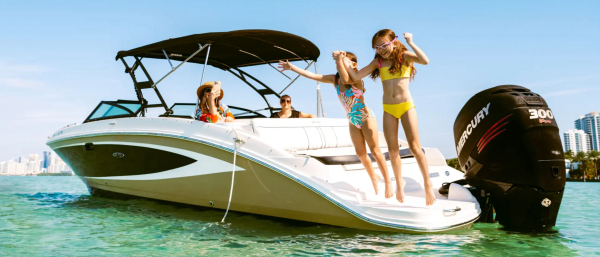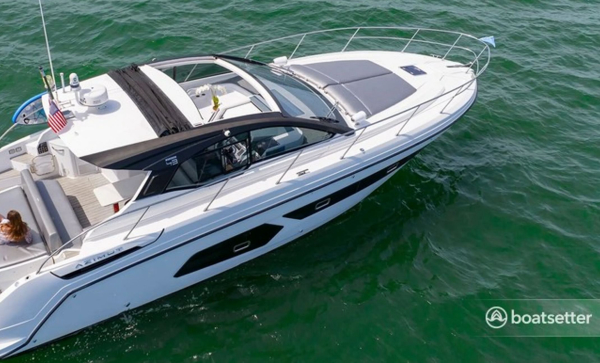By Frank Sargeant
Frankmako1@gmail.com
In recent years, the “sharing economy” has extended its reach into the world of boating, akin to what Airbnb and VRBO did for vacation rentals. This growing trend is reshaping the way people access and enjoy the water.
The Evolution of Boat Rentals
The vacation rental industry has seen a surge in popularity over the past decade, thanks to platforms like Airbnb and VRBO. Today, it seems like everyone is offering their spare room to travelers, and savvy entrepreneurs are acquiring additional properties to expand their rental empires. A similar phenomenon is occurring in the boating world. Companies like Brunswick have entered the scene, acquiring pioneering boat-sharing concepts like Freedom Boat Club. These firms now operate in over 300 U.S. locations and several other countries, offering boating enthusiasts a new way to experience the water.

With boat-sharing services, members pay a (substantial) one-time enrollment fee and monthly dues of around $250, granting them access to a diverse fleet of boats across the country. While this may not be vastly different from owning a small boat economically, it opens doors to exploring various regions while cruising on boats that are larger and more luxurious than what many could afford to purchase.
DIY Boat Rentals: A Growing Market
Beyond the established giants in the industry, there's a burgeoning market of do-it-yourself boat owners who rent out their personal vessels. Some do it to cover their monthly boat payments, while others are generating enough income to acquire multiple boats for rental purposes.
Pros and Cons for Renters
Renting a boat offers several advantages. You avoid the hassle of towing a boat to distant locations, fueling it, and dealing with repairs. The rental agent or individual owner shoulders these costs. In most cases, rental companies also handle initial maintenance and cleaning. Although you're typically responsible for refilling the fuel tank upon return, this is similar to the refueling fees associated with rental cars.

Moreover, the boat's depreciation becomes the owner's concern, not yours. Even if you lack boating experience, many locations offer the option of hiring a paid, licensed captain to navigate while you relax, fish, dive, or enjoy other activities. Additionally, some larger houseboat and yacht rentals allow overnight stays, eliminating hotel expenses and adding a unique dimension to your vacation.
Pros and Cons for Rental Owners
Owners who rent out their boats charge fees that cover ownership costs and provide a profit. It's a quintessential American small business venture, and it's thriving nationwide, thanks in part to companies that facilitate advertising and insurance for personal rentals.
Boatsetter, a prominent player in the boat-sharing industry, offers a range of boats, from runabouts to pontoon boats, with prices varying based on factors like size, power, and location. Larger yacht-type boats in coastal waters command higher prices, often including a licensed captain.

However, being a boat rental owner comes with its challenges. Effective advertising can be demanding for those who aren't tech-savvy or unwilling to maintain a daily website. Rental agencies typically address this with professional-grade websites. Furthermore, they handle liability insurance, a critical aspect for those renting out their boats independently.
The downside includes the need to personally introduce customers to the boat and its basic operation, conduct a short test drive to assess their competence, and be present on return to ensure the boat is in good condition and the fuel tank is full. Owners also face potential headaches, such as mechanical issues, collisions, adverse weather, or unruly renters.
While boat rental ownership isn't without its complexities, it's a viable opportunity, especially if you reside near the water or a marina. Below are a few companies involved in different aspects of the boat-sharing industry: